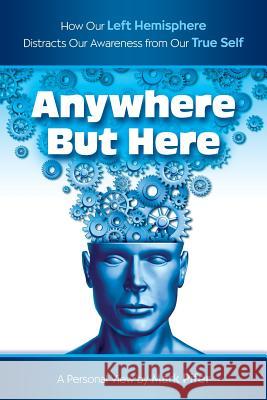Anywhere But Here: How Our Left Hemisphere Distracts Our Awareness from Our True Self » książka
Anywhere But Here: How Our Left Hemisphere Distracts Our Awareness from Our True Self
ISBN-13: 9781478336686 / Angielski / Miękka / 2012 / 336 str.
In almost all of the major religions there is a person who came to some amazing realizations about their place in the universe. It usually followed time alone in deep introspection and resulted in a message that they shared with the world. And it is highly improbable to believe that the beautiful sentiments found in the many religious/spiritual texts came from knowingly disingenuous sources. Those who were writing about the mystical/spiritual experiences that they felt firsthand and through which insights like "Do unto others as you would have done to yourself" came from clearly experienced SOMETHING. Thousands of years worth of material has been written by many sources, many voices, and they have all been very similar: from Christianity's "Love thy neighbor as thyself" to Buddhism's "One who, while himself seeking happiness, oppresses with violence other beings who also desire happiness, will not attain happiness hereafter" or Hinduism's "One should never do that to another which one regards as injurious to one's own self. This, in brief, is the rule of dharma. Other behavior is due to selfish desires" we hear echoes of the same messages, messages of a feeling of unity with others, with the world, and the universe at large. For those thousands of years the people who were the sources of these words had only the use of poetic metaphorical language to discuss their shifts of perception, we now, through neuroscience have a clearer view of what it was they were pointing to with these beautiful sentiments.
Zawartość książki może nie spełniać oczekiwań – reklamacje nie obejmują treści, która mogła nie być redakcyjnie ani merytorycznie opracowana.











